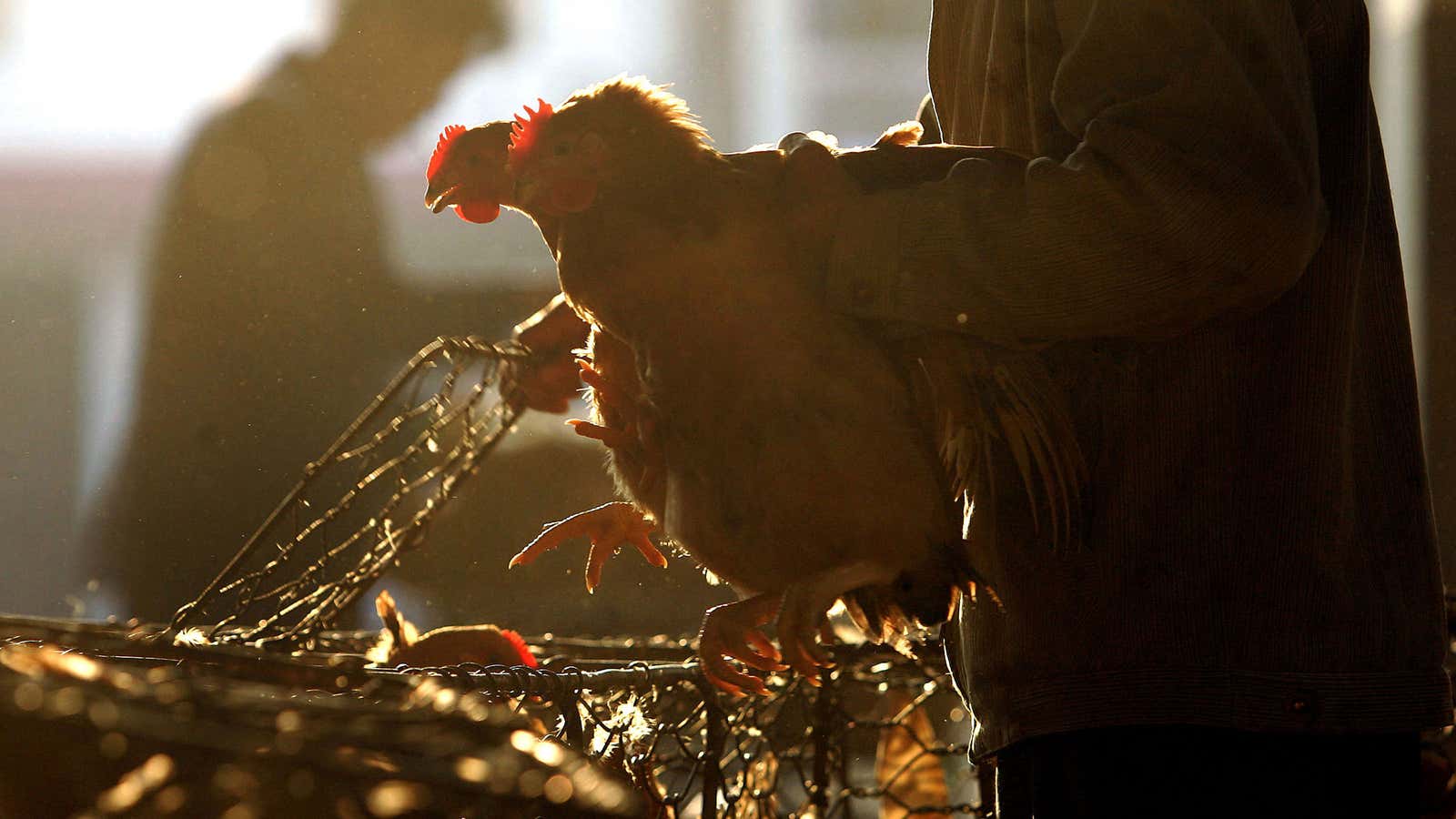Tyson Foods Inc.’s strong earnings results hint at the world’s complex and changing relationship with meat.
Tyson’s net income rose 91%, with the company’s chicken business driving the increase, the company reported yesterday. Greater sales played a part—but so did higher prices. Across the industry meat prices are going up, and cost, along with changes in people’s eating habits, have brought overall US meat consumption down by some 12% in the last five years, according to a forecast last year from the Daily Livestock Report (pdf).
Meanwhile, the drought that struck the American Midwest this summer could hit its profits in the next quarter, Tyson cautioned. The drought raised prices of grain, which along with corn, is the main ingredient in animal feed. And though this year’s drought was unusually severe, experts predict that extreme weather will become a more common occurrence. In addition, corn has been diverted for use in ethanol for vehicle fuel, raising the price of animal feed—and thus of meat.
Another reason Tyson’s chicken business did so well could be that it came at the expense of its sales of beef and pork, which declined 2.4% and 7.8% respectively. The sluggish economy is to blame—those are pricier meats—but the slowdown could also be part of a longer-running trend. Burgers may be an all-American dining staple, but beef sales in the US have been declining since the 1970s.
All this means Tyson has been starting to focus on markets outside of the US. This makes sense, given that as the middle classes in emerging markets grow, they eat more meat. Pork exports from the US grew 40% in 2008 and are expected to have another record year, according to the Daily Livestock Report. China now consumes twice as much meat as the US, and Chinese chicken consumption is set to exceed 13 million tons this year. Tyson has foreign start-up businesses in Brazil and China, and in its earnings report it pledged to continue to make significant investments in the development of foreign operations. Isobel Coleman, a fellow at the Council on Foreign Relations, said in an interview, “Around the world you have rising middle classes, a growing demand for meat and protein in the diet, and countries around the world are becoming increasingly dependent on relatively inexpensive food stocks from the United States.”
